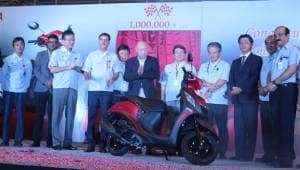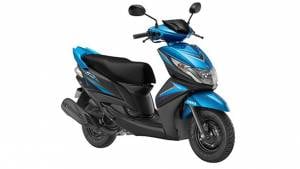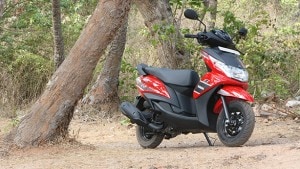Spec shootout: Yamaha Ray Z vs Vespa VX vs Honda Activa-i
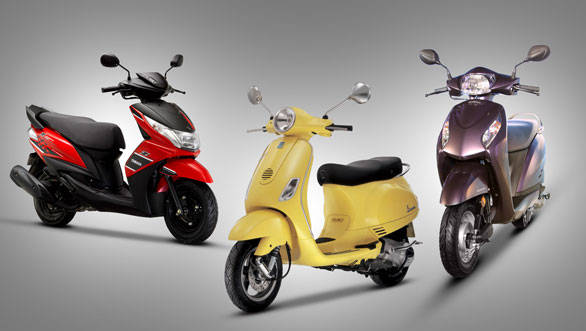 2013 Yamaha Ray Z vs Vespa VX vs Honda Activa-i
2013 Yamaha Ray Z vs Vespa VX vs Honda Activa-i
It's raining scooters this monsoon, with three launches in fairly quick succession. First came the scooter for the bros - the Ray Z, followed recently by the much-anticipated Activa-i and today, the Vespa VX with a front disc brake. While we have ridden "your new bro" Ray Z, we'll be testing the other two scooters shortly. In the meanwhile, here's a quick comparison (on paper) of these three competitors.
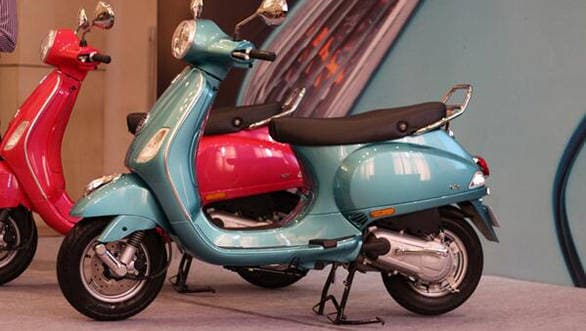 2013 Vespa VX
2013 Vespa VX
Styling
The Vespa here is the oldest of the three scooters and the updated VX variant brings a shiny 200mm disc brake at the front, new meters, a broader seat with an option of a beige colour and a wider grab rail for the pillion. The retro theme is carried forward from the standard Vespa and we think it's a good move considering the scooter sells primarily on its styling.
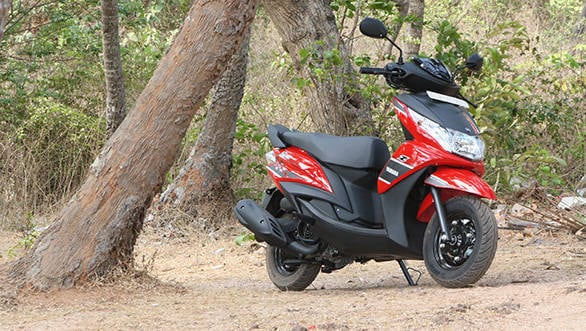 Yamaha Ray Z
Yamaha Ray Z
Yamaha's Ray has been around for almost a year and the Japanese manufacturer's sole scooter entry has been getting rave reviews both from the media and the public. When initially launched, the Ray was billed as a scooter for the ladies, which we though was pigeonholing an honestly good scoot. A few weeks ago, Yamaha launched the Ray Z, now for gentlemen/boy racers. To be seen as a scoot that men will want to ride, Yamaha gave the Ray a visor on the handlebar fairing, carbon-finish seats, a complicated looking grab rail that looks like a spoiler and finally, red-coloured rear suspension springs. Did I mention snazzy graphics?
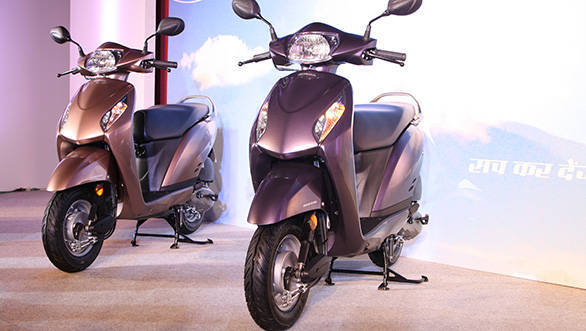 2013 Honda Activa-i
2013 Honda Activa-i
The Activa-i is an odd new thing in this bunch. Honda toned down the bulbous shape of the Activa and used a line or two from the styling of erstwhile partner Hero MotoCorp's Pleasure scooter, and a front reminiscent of it's own 'male' scooter, the Aviator. So, the Activa-i has indicators on its front apron, less sheet metal on the body and a different tail lamp treatment.
Mechanicals
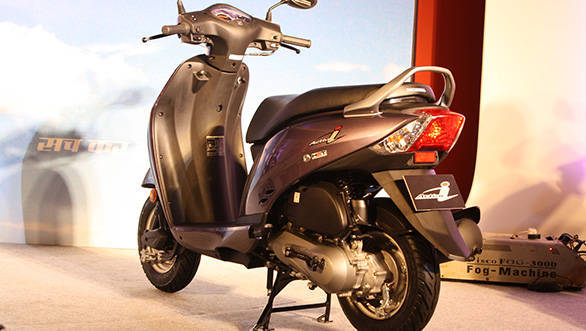 2013 Honda Activa-i
2013 Honda Activa-i
All three scooters here use the same mechanicals as their other, already-in-the-market siblings. This means that the Vespa VX is powered by the peppy 10PS 125cc mill while the Activa-i uses the recently HET-ified 8PS 110cc engine. The Ray Z, Yamaha says, gets the standard 7.1PS 113cc engine but has updated roller-rockers and carburettor. We rode the Ray Z and found it to be similar to the Ray. Yamaha also says that the suspension in the Ray Z has also been upgraded and so have some frame bits. While details about the fuel efficiency of the Vespa VX are still unavailable, we expect it to be the same as the standard scooter: 60kmpl under test conditions. The Activa-i persists with its 60kmpl claim as well. This leaves the Yamaha Ray Z at a manufacturer claimed 53kmpl.
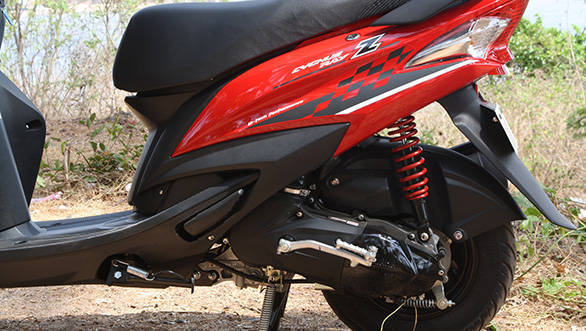 Yamaha Ray Z engine
Yamaha Ray Z engine
Other bits
Apart from the token graphics and body changes, it's the Vespa VX which brings a much-needed 200mm front disc brake to the party. The Activa-i uses Honda's Combi Braking System (CBS) while the Ray Z persists with the Ray's 130mm drums at both ends.
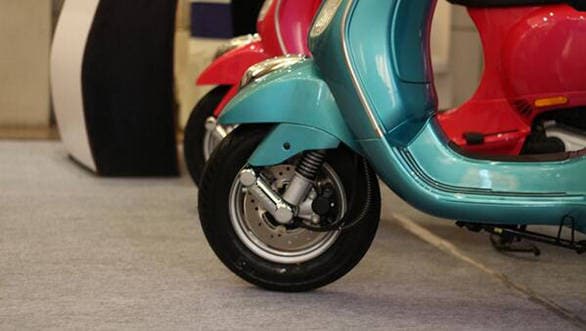 2013 Vespa VX front disc brake
2013 Vespa VX front disc brake
Price
While prices of the Vespa VX will be announced at a later date, we believe it should be priced Rs 2500 more than the standard variant (? 59996). The Ray Z retails at ? 48,555 and the Activa-i at ? 44,200 ex-Delhi.
